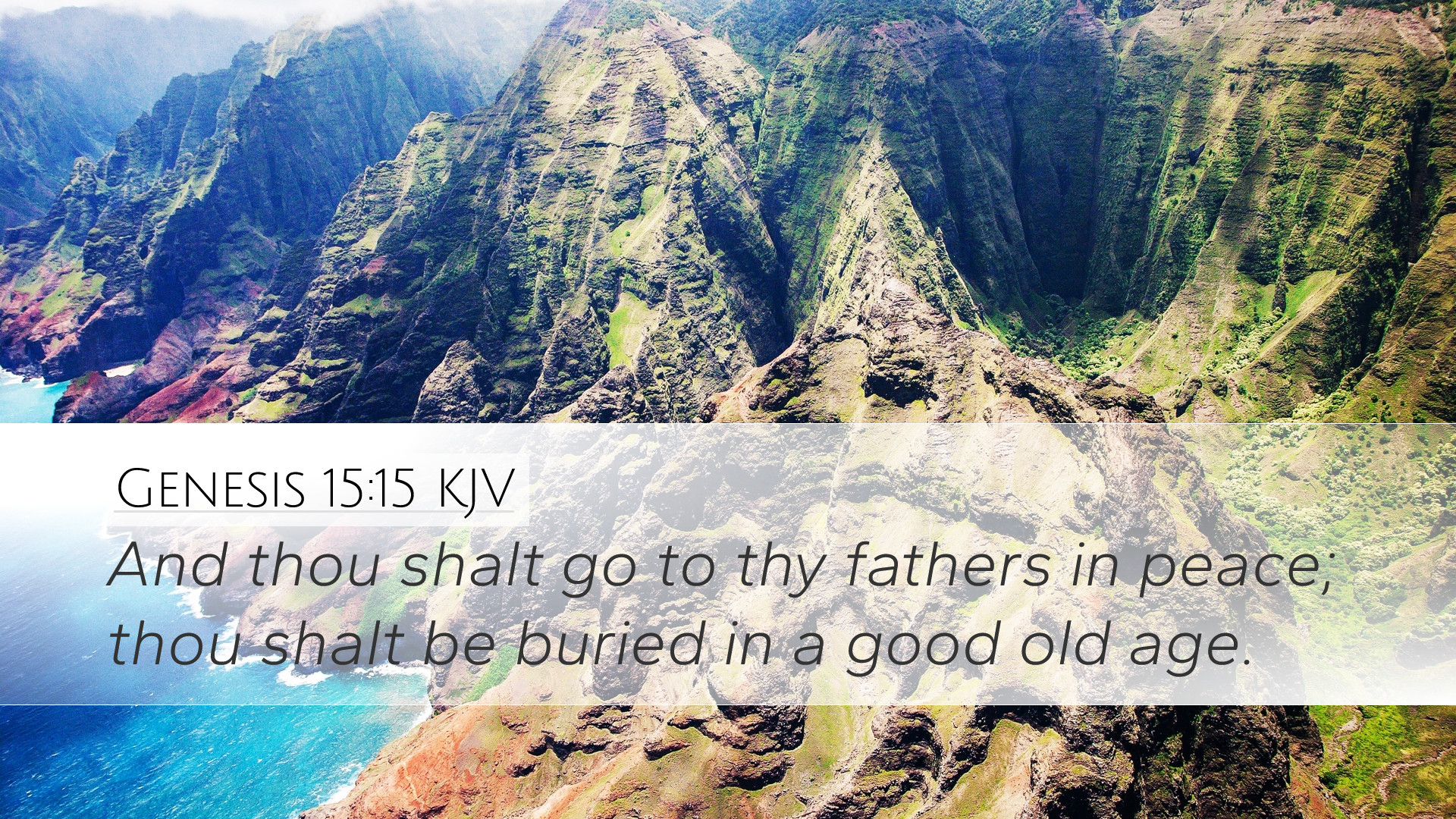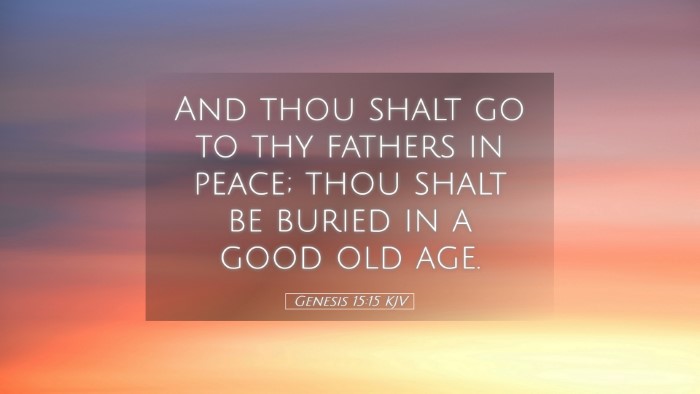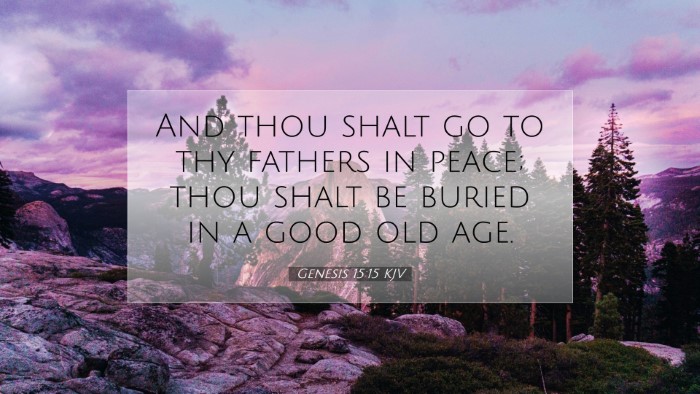Commentary on Genesis 15:15
Verse: "And thou shalt go to thy fathers in peace; thou shalt be buried in a good old age."
Introduction
Genesis 15:15 is a pivotal verse in the narrative of Abraham, presenting both a promise from God and a reassurance about his future. This commentary draws from the insights of esteemed commentators such as Matthew Henry, Albert Barnes, and Adam Clarke. This verse is significant not only for its immediate context but also for its theological implications.
The Context of the Verse
In Genesis 15, Abraham is in a moment of divine revelation, receiving a covenant from God regarding his descendants and the land they would inherit. The overarching theme of faithfulness permeates this chapter, where God reassures Abraham amidst his doubts regarding the fulfillment of these promises.
Exegesis and Commentary
The verse can be divided into two primary components: the assurance of a peaceful death and the promise of a good old age. Each of these components reveals a broader theological and practical truth.
Peaceful Death
Matthew Henry emphasizes the importance of a "peaceful" death as a divine blessing. Abraham is assured that he will not face the chaotic end that may accompany a life lived in opposition to God's will. Instead, his death will be a culmination of faithfulness to God’s covenant.
Albert Barnes adds that this peace indicates not just the absence of conflict but the presence of a divine assurance. Abraham's life had been filled with trials: his call to leave his homeland, the tension with Lot, and the awaiting fulfillment of a promised heir. Nevertheless, God assures him that his ultimate end will be tranquil, a reassurance for all believers facing life's uncertainties.
Good Old Age
The promise of being "buried in a good old age" stands as a testament to God’s covenant of longevity and providence. Henry refers to this as a result of God's favor toward Abraham, especially considering his obedience and faith. It highlights a significant aspect of God's nature – the desire for His people to thrive, not merely survive.
Adam Clarke elaborates on the reference to “good old age” as not only a physical state but a spiritual one. It speaks to the fullness of life that comes from walking in covenant with God. It implies that the close of life, when lived with integrity, can lead to satisfaction and fulfillment, and hope for eternity.
Theological Implications
This verse showcases God's promises not just for Abraham's immediate future, but it extends to his offspring and the nation that would arise from him. It reflects God’s eternal nature and His unwavering commitment to humanity.
- Covenant Faithfulness: The promise reiterates God's faithfulness to covenants made from the beginning, seen throughout biblical history.
- Legacy and Generational Impact: Abraham’s peaceful end and good life serve as a model of faith for subsequent generations, underscoring the importance of living in accordance with God's will.
- Hope After Struggle: For pastors and theologians, this verse provides a strong message of hope. It reassures that despite life's fleeting struggles, faith leads to a divinely ordained peace and legacy.
Application for Believers
For Pastors and Spiritual Leaders: This verse encourages preaching on the themes of God’s promises, His faithfulness, and the peace that comes with living a life aligned with His will. It provides a framework for understanding the spiritual journey of believers as one that culminates in peace.
For Students and Theologians: Analyzing this verse allows deeper exploration into covenant theology, eschatology, and the nature of divine assurance. It invites analysis of how God’s promises unfold through biblical narrative and apply to contemporary faith practice.
For Lay Believers: This assurance of peace in death serves as comfort to those facing mortality. It encourages believers to trust in God's promises and to live lives of obedience, knowing that they can anticipate a peaceful conclusion to their earthly journeys.
Conclusion
Genesis 15:15 encapsulates the essence of God's promise to Abraham and, by extension, to all who are part of the faith community. Life lived in hope and faith results in a peaceful end and a legacy that endures, defining not just individual lives but the collective identity of God's people. As believers reflect on this verse, they are called into a deeper relationship with God, grounded in the faithfulness of His promises.


